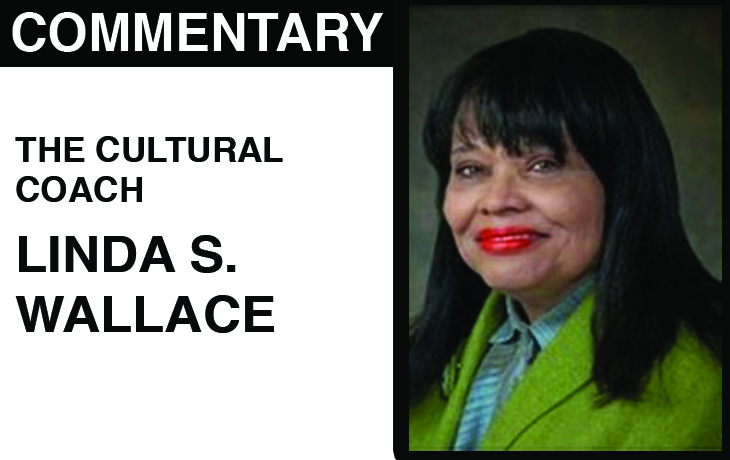by Linda S. Wallace, Special to TSDMemphis.com
Ruth Bader Ginsburg was a fighter who loved to think and a thinker who loved to fight – a rare, yet powerful combination.
Her older sister died when she was a baby; her mother died of cancer and was buried the day before her high school graduation. Adversity taught her to work harder.
Ginsburg went on to earn a bachelor’s degree at Cornell University, where she met her husband, Martin. She was a young mother with a baby when she began studies at Harvard Law School. After her husband received a job in New York, she transferred to Columbia Law School, where she graduated and tied for first in her class.

Nobody back then would hire a bright female lawyer, so after graduation she created a new career path. Ginsburg devoted herself to advancing gender equity by arguing that the Constitutions’s guarantee of equality put women and men on equal footing.
This was a concept so novel that it was not easily grasped by men of that day, Ginsburg said.
It is difficult to explain injustice to someone who has never been knocked down by it. In a documentary on her life called “RBG,” Ginsburg would later describe herself as “part kindergarten teacher” for the role she played educating others about women’s challenges.
It took awhile for her to find the right argument, but she did: “Think about how you would like it to be for your wife and daughters.”
As Ginsburg began winning cases before the U.S. Supreme Court, gender barriers began to fall. As a result, life became easier for women ensuring, for example, they could get a mortgage or open a checking account without a male co-signer and receive benefits equal to their male colleagues.
“I ask no favor for my sex,” Ginsburg would say in closing arguments before the Supreme Court. “All I ask of our brethren is that they take their feet off our necks.”
As a woman and business owner, I am deeply grateful for all that Justice Ginsburg has done for me. Had it not been for her, I might not have had so many career options as an African-American woman, including the ability to work for myself, make business and contract decisions or to buy a house.
However, I most admire her for the way she behaved in defeat and used disappointment over a court ruling to educate others, like a kindly kindergarten teacher might do.
In her dissent on the landmark ruling, Holder vs Shelby County (AL), Ginsburg argued passionately that voting discrimination had not ended.
The case concerned the constitutionality of two key provisions of the Voting Rights Act of 1965: Section 5 protected minority voters’ rights by requiring that certain states and local governments obtain federal pre-clearance before making changes to their voting laws or practices; and Section 4(b) laid out the coverage formula that determines which jurisdictions are subjected to pre-clearance based on past discriminatory voting practices.
On June 25, 2013, the U.S. Supreme Court ruled by a 5-to-4 vote that Section 4(b) was unconstitutional because the coverage formula, which determined which jurisdictions were subjected to pre-clearance – a type of overview or monitoring – was based on data over 40 years old.
Chief Justice John Roberts reasoned that coverage today was based on decades-old data and eradicated practices, suggesting that pre-clearance had been effective and was no longer needed.
Ginsburg disagreed.
“Throwing out pre-clearance when it has worked and is continuing to work to stop discriminatory changes is like throwing away your umbrella in a rainstorm because you are not getting wet,” she wrote in her dissent.
Ginsburg taught us that if our side doesn’t win, the fight still is not over. We must turn dissent into an art and skill, as she did. And we must do it in a manner that opens hearts and minds to our way of thinking.
“Reacting in anger or annoyance will not advance one’s ability to persuade,” she wrote in an op-ed for The New York Times.
Affectionately nicknamed “Notorious RBG” by a generation of youthful admirers, Ginsburg understood that loud and angry mass protests aren’t the only way to fight back.
Sometimes, one person who works unbelievably long hours, and chooses her words with care, can make this a more equitable world.
(Communications specialist Linda S. Wallace helps clients develop cross-cultural messages for the workplace and the media. Readers can submit questions on work or personal matters to theculturalcoach@aol.com.)
GALLERY: Gary S. Whitlow/GSW Enterprises
Local attorneys and others moved by the death of United States Supreme Court Associate Justice Ruth Bader Ginsburg honored her legacy during a public memorial in Downtown Memphis outside the Judge D’Army Bailey Courthouse on Monday.
 REMEMBERING: Tennessee Court of Criminal Appeals Judge Camille R. McMullen, the first African-American woman to serve on a Tennessee appellate court and a former federal prosecutor (Western District of Tennessee), reflects on U.S. Supreme Court Associate Justice Ruth Bader Ginsburg during a celebration of Bader’s legacy held outside the D’Army Bailey Courthouse on Monday. (Photo: Gary S. Whitlow/GSW Enterprises)/ Ruth Bader Ginsburg (Photo: U.S. Surpreme Court)
REMEMBERING: Tennessee Court of Criminal Appeals Judge Camille R. McMullen, the first African-American woman to serve on a Tennessee appellate court and a former federal prosecutor (Western District of Tennessee), reflects on U.S. Supreme Court Associate Justice Ruth Bader Ginsburg during a celebration of Bader’s legacy held outside the D’Army Bailey Courthouse on Monday. (Photo: Gary S. Whitlow/GSW Enterprises)/ Ruth Bader Ginsburg (Photo: U.S. Surpreme Court)









